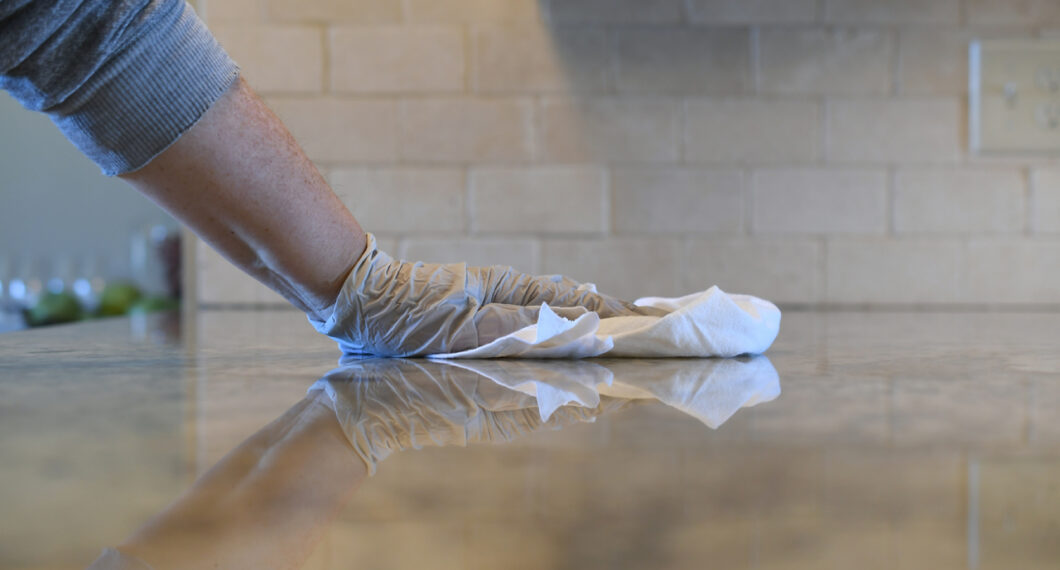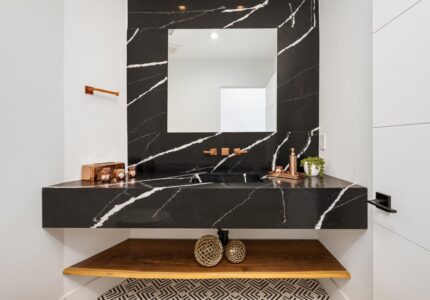Sealing granite countertops is a recommended practice to help protect them from stains and damage caused by spills and daily use. However, whether you need to seal your granite and how often it should be done can vary based on the specific type of granite you have and its porosity.
Do You Need to Seal Granite Countertops?
Need for Sealing:
- Porosity of Granite: Some granites are more porous than others. Lighter-colored granites or those with more veins and fissures might be more porous and, thus, more prone to absorbing liquids and staining.
- Water Absorption Test: Conduct a simple water test by sprinkling some water on the countertop. If the water beads up, your granite doesn’t require immediate sealing. If it absorbs into the stone, it’s time to seal it.
How Often to Seal Granite Countertops?
- Frequency: Generally, it’s suggested to seal granite countertops once a year. However, the frequency may vary based on the porosity and the type of sealant used. Some seals may last longer and require reapplication after a few years.
- Check Manufacturer Recommendations: Follow the specific recommendations provided by the manufacturer of your granite or the sealant you are using.
Sealing Methods:
Types of Sealants:
- Topical Sealers: Form a protective layer on the surface of the stone. They are easier to apply but may need more frequent reapplication.
- Penetrating Sealers: Absorb into the stone, providing protection from within. They are more durable but might be trickier to apply.
Application Methods:
- Spray-On Sealers: Convenient for application, but they might not provide as strong or long-lasting protection.
- Wipe-On Sealers: Applied with a cloth or sponge, allowing better coverage and penetration into the stone.
Sealing Agents to Seal Granite Countertops:
Chemical Sealers:
- Silicone-based Sealants: Offer excellent protection against water and oil-based stains. Pros include ease of application and affordability. However, they might not be as durable and may require frequent reapplication.
Natural/Organic Options:
- Natural Oils (such as linseed or mineral oil): These can be used as a temporary natural sealant. They may offer protection, but it’s usually not as long-lasting as chemical sealers. Over time, these can darken the stone and might require more frequent reapplication.
Pros and Cons of Sealing Granite Countertops:
Chemical Sealers:
- Pros: Effective protection, ease of application, affordable.
- Cons: Might not be as durable, might require more frequent reapplication.
Natural/Organic Options:
- Pros: Natural, eco-friendly, and relatively safe. Temporary protection.
- Cons: Less long-lasting, might darken the stone over time, and need frequent reapplication.
Tips:
- Clean Before Sealing: Ensure the countertop is clean and dry before applying the sealer.
- Follow Instructions: Always follow the manufacturer’s instructions for the sealer.
- Test on Small Area: Test the sealer on a small, inconspicuous area first to ensure compatibility and desired results.
- Regular Maintenance: Sealing doesn’t make granite stain-proof; regular cleaning and immediate spill cleanups are still necessary.
Selecting the right sealant and method depends on personal preference, the type of granite, and the level of maintenance you’re willing to commit to.






